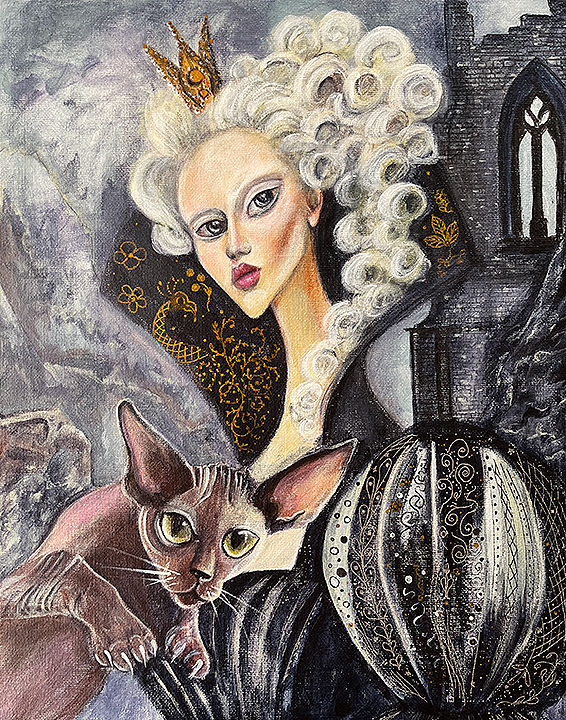The Door Opens Inward
- Natalia Lakes

- Apr 4
- 3 min read

After many years of regular, deep meditation—thousands of hours spent wandering the quiet halls of my own mind—I discovered something extraordinary: I could walk myself into dreams. Not by accident, but by intention.
Now, when I lie down at night, I don’t simply fall asleep. I journey.
It begins with a descent into breath, slow and deliberate. My body sinks into stillness, yet my mind lingers just behind the veil of waking. A landscape begins to bloom—not with the hazy randomness of sleep, but with the intentional clarity of creation. Sometimes it's a lush forest carved from memory and myth; other times, a cobbled village echoing a century I’ve never lived. I don’t see these places first—I feel them, the way you sense a familiar place before you open your eyes. And then—I'm there. Fully lucid. Fully alive.
Some nights, I step into a vast library where every book holds a dream I’ve never dreamed. Other nights, I speak with ancestors in forgotten tongues, or soar over oceans lit by two moons. This dream world has become a private studio of my soul—a place to explore, to create, to remember what waking life often forgets.
And the best part?
Every night holds the potential for an epic. Better than any TV series, because here, I am the protagonist. The set designer. The director of consciousness. And meditation handed me the key.
I found myself standing at the edge of an ancient castle garden. Mist coiled through the hedges like silver ribbon, and moonlight dripped across the rose garden. It was one of those dreams—the ones where you know you're dreaming, and yet the world pulses with a reality so vivid it eclipses waking life.
Behind me loomed the castle, its spires piercing the clouds like thoughts reaching for the divine. And there—she stood.
A girl with auburn curls cascading like a waterfall, an intricate silver headpiece resting on her forehead. A white dove balanced delicately on her finger, as though it were the most natural thing in the world. When she looked at me, her eyes—impossibly large and rimmed with shadow—softened with recognition.
"I’m not the product of your imagination," she announced. "My name is Sibyl. I live in this castle, and it’s the year 1487. I came here because only within this lucid dream can I reach the staircase to the top of the oldest oak. I need to add new logs to the fire. My grandfather told me you'd come. He said you have a message for me."
I hesitated for a second, then blurted out before I could think of anything:
"The door to that staircase opens inward."
Sibyl nodded. Then, she looked past me, toward the light cracking across the dream-sky.
"You’ll wake up soon," she whispered.
And like mist surrendering to morning, she vanished.
When I awoke, the words still echoed in my chest: The door opens inward.
Lucid dreaming isn’t just a nightly ritual—it’s a dialogue with the deeper self, the hidden self, the eternal self. And while each dream fades with the rising sun, something remains. A trace. A truth.
Art, like lucid dreaming, is an act of consciousness. We don’t just see it—we enter it. We walk through the brushstrokes as if they are revelations made visible. “The Door Opens Inward” isn’t just a painting. It’s a door to your hidden self.


